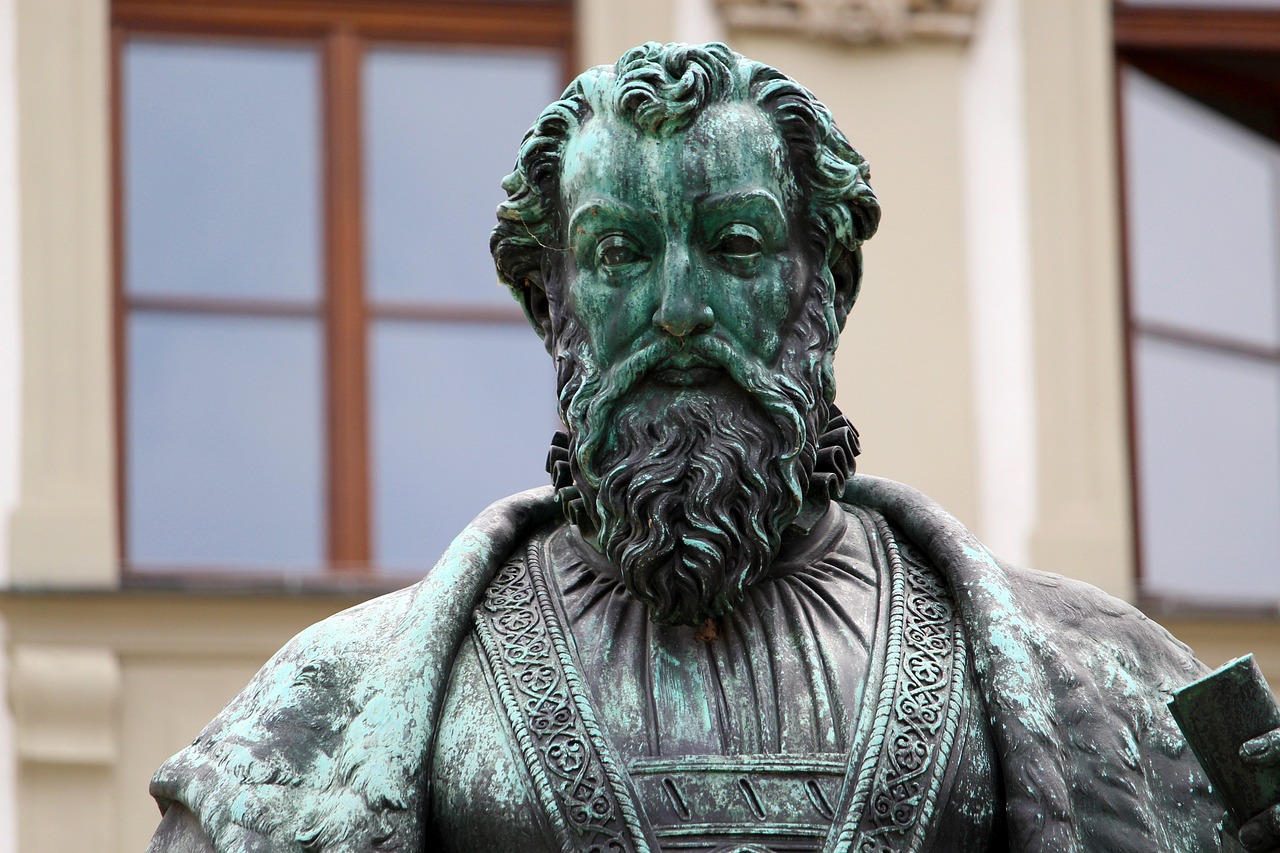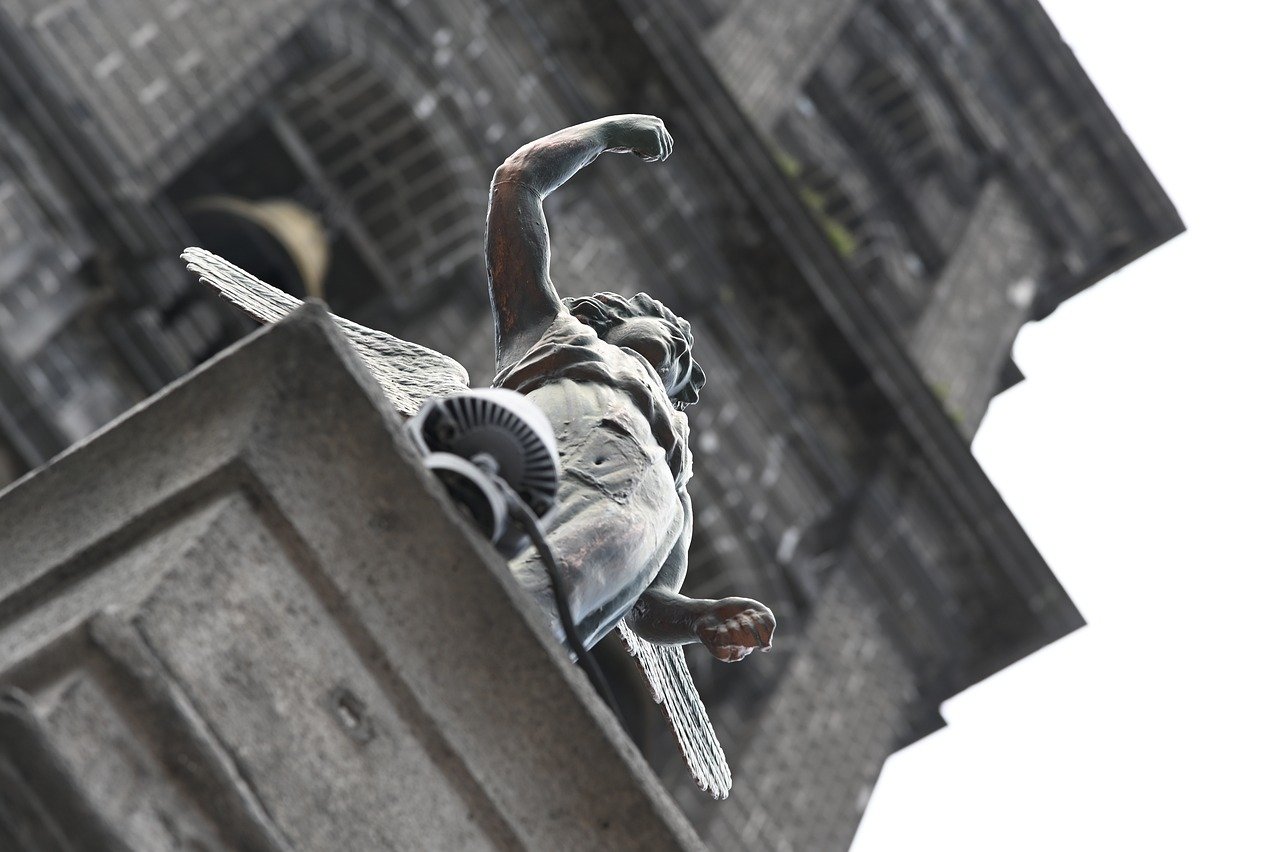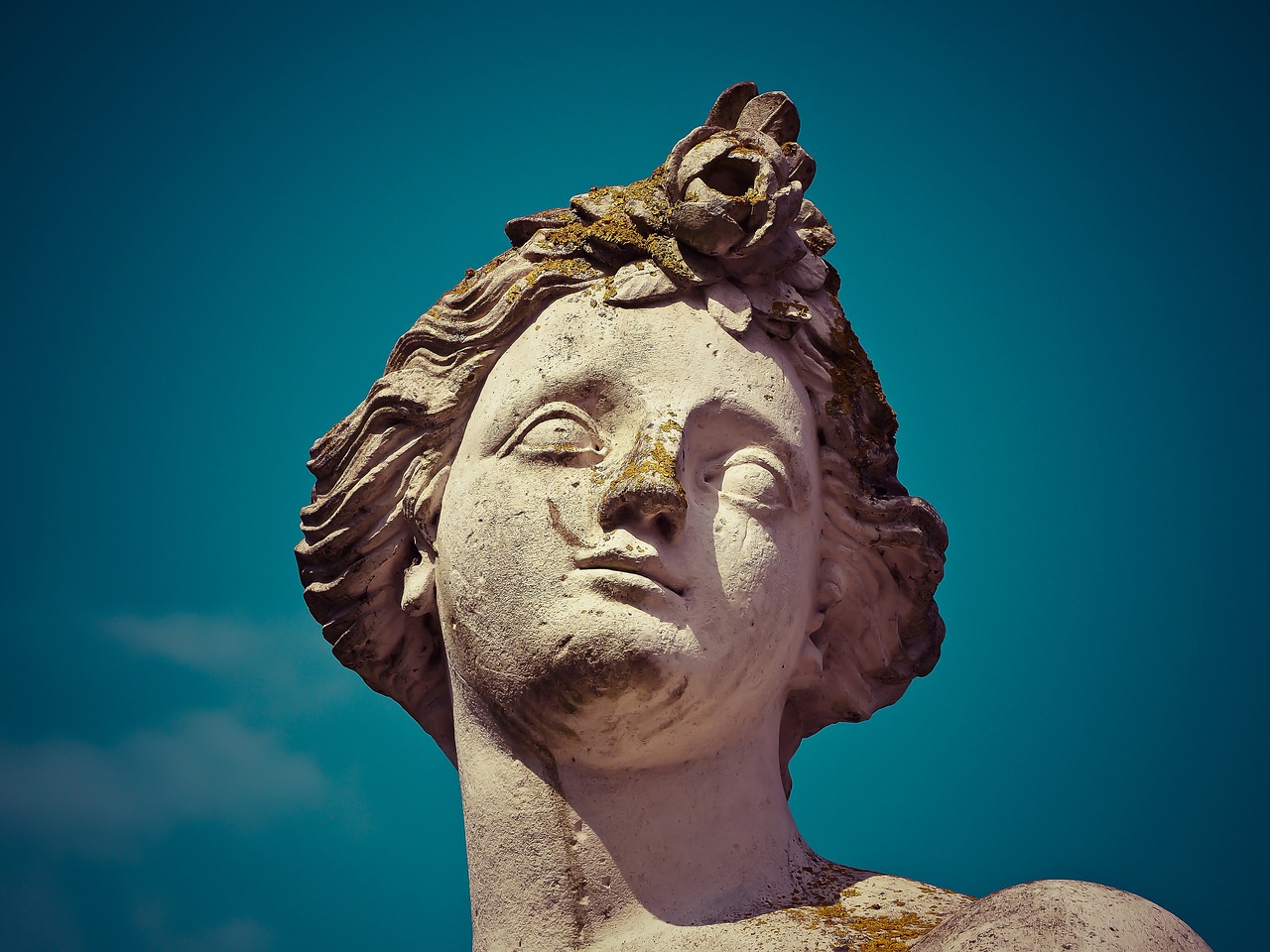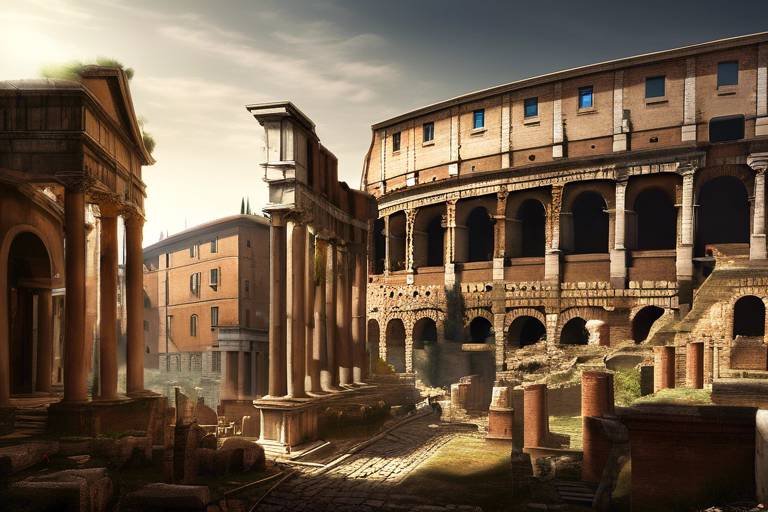The Cult of Athena - Wisdom and Warfare in Ancient Greece
The Cult of Athena in ancient Greece was a fascinating phenomenon that intertwined the realms of wisdom and warfare, embodying a unique duality that captivated the hearts and minds of the ancient Greeks. Athena, the goddess of wisdom, strategic warfare, and various crafts, held a prominent place in Greek mythology and religious practices, shaping the cultural landscape of the ancient world.
Originating from the head of Zeus, Athena's birth symbolized her association with intellect and divine insight. The owl, representing wisdom, and the olive tree, symbolizing peace and prosperity, were attributed to her, underscoring her multifaceted nature as a deity revered for her intellect and strategic prowess.
The iconic statue of Athena Parthenos, housed in the Parthenon, stood as a testament to the goddess's virginity, wisdom, and protective presence over the city of Athens. Crafted with meticulous detail, the statue embodied the essence of Athena as a guardian and patron of the city.
The temple of Athena Nike, perched on the Acropolis, served as a symbol of victory in warfare and strategic wisdom. Revered for her guidance in battles and military endeavors, Athena was worshipped as a deity who bestowed success and foresight upon her devotees.
Athena Polias, the protector of Athens, was honored through elaborate cult rituals and festivals that celebrated her role in safeguarding the city. Her presence permeated every aspect of Athenian life, instilling a sense of security and divine protection among the populace.
As Athena Ergane, the patron of crafts and weaving, the goddess symbolized female empowerment and artistic expression. Her influence extended to the realms of creativity and skill, inspiring women to excel in various artisanal pursuits.
In her warrior aspect as Athena Promachos, the goddess embodied strategic warfare and prowess in battle. Known for her tactical acumen and guidance in times of conflict, Athena was revered as a formidable ally in the face of adversity.
The enduring relationship between Athena and Odysseus in Homer's Odyssey showcased the goddess's pivotal role in assisting the hero on his epic journey. From providing counsel in times of need to intervening in battles, Athena's presence loomed large in Odysseus's quest for homecoming.
Reflecting on Athena's legacy in modern culture, her symbolic significance transcends time, resonating in literature, art, and feminist movements. As a symbol of wisdom, warfare, and female empowerment, Athena continues to inspire and empower individuals to embrace strategic thinking and intellectual pursuits.

Origins of Athena
Exploring the significance of Athena in ancient Greek culture, focusing on her dual role as the goddess of wisdom and warfare, and how her cult influenced various aspects of society and religious practices.
The origins of Athena in Greek mythology are as fascinating as the goddess herself. According to ancient tales, Athena was born fully grown and armored from the head of her father, Zeus. This unique birth symbolizes her association with wisdom and strategic warfare, emerging fully formed and ready for battle. The owl, a creature known for its wisdom, and the olive tree, a symbol of peace and prosperity, are often linked to Athena, emphasizing her multifaceted nature.

Athena Parthenos
The statue of Athena Parthenos is a remarkable symbol of the goddess's attributes and significance in ancient Greek culture. Housed in the Parthenon, this iconic statue represents Athena's virginity, wisdom, and protection over the city of Athens. The word "Parthenos" itself means virgin, emphasizing Athena's purity and independence. The statue, crafted from gold and ivory, stood over 30 feet tall, radiating power and grace. It was a focal point of religious devotion and a testament to the importance of Athena in the hearts of the Athenian people.
Depicted in full armor with a shield and spear, Athena Parthenos embodied the warrior aspect of the goddess, showcasing her strength and strategic prowess in battle. The owl, a symbol of wisdom, perched on her shoulder, further emphasizing her role as the goddess of wisdom. The olive tree, another emblem associated with Athena, represented peace and prosperity, reflecting her multifaceted nature as a deity of both war and civilization.
The statue of Athena Parthenos not only served as a religious symbol but also as a political statement. It signified the city-state of Athens' cultural and military superiority, with Athena as its divine protector and guardian. The craftsmanship and artistry involved in creating such a monumental statue highlighted the importance of the goddess in the daily lives and beliefs of the ancient Greeks.

Athena Nike
When delving into the world of ancient Greek mythology, the figure of Athena shines brightly as a multifaceted deity embodying both wisdom and warfare. Among the various aspects of her worship, the temple of Athena Nike stands as a testament to her role as a symbol of victory in battle and strategic prowess.
Located on the Acropolis of Athens, the temple of Athena Nike is dedicated to the goddess in her aspect as the bringer of success in warfare. The name "Nike" itself signifies victory, highlighting Athena's association with triumph and military achievements. This architectural marvel not only served as a place of worship but also as a strategic point symbolizing the importance of wisdom and tactical thinking in conflicts.
The temple's structure, with its intricate columns and intricate friezes, reflects the grandeur and power attributed to Athena Nike. It stood as a reminder to the citizens of Athens of the goddess's protection and guidance in times of war, instilling a sense of confidence and strength in the face of adversaries.
Furthermore, the presence of Athena Nike in the religious and cultural landscape of ancient Greece emphasized the interconnectedness of wisdom and victory. The goddess was revered not only for her strategic acumen in battles but also for her role in shaping the intellectual and artistic pursuits of the society, highlighting the importance of a well-rounded approach to life.
As visitors gazed upon the temple of Athena Nike, they were reminded of the dual nature of the goddess, embodying both the intellectual prowess of wisdom and the fierce determination of warfare. This duality served as a source of inspiration for the ancient Greeks, urging them to seek balance in their pursuits and to embrace both the peaceful pursuit of knowledge and the strategic art of war.

Athena Polias
The cult of Athena Polias held a central place in the religious practices of ancient Athens, with the goddess revered as the protector of the city. Known as the "City Goddess," Athena Polias was worshipped in the Erechtheion temple on the Acropolis, where the sacred olive tree, believed to have been planted by Athena herself, symbolized her presence and protection over the city.
Devotees of Athena Polias participated in various rituals and festivals throughout the year to honor the goddess and seek her blessings for the well-being and prosperity of Athens. The Panathenaic festival, held annually, was one of the most significant celebrations dedicated to Athena, featuring processions, athletic competitions, and sacrifices in her honor.
The cult of Athena Polias also played a crucial role in the political and social life of ancient Athens, as the city's leaders sought the goddess's guidance and protection in times of crisis and decision-making. Athena's wisdom and strategic counsel were believed to influence the outcome of important events, including military campaigns and diplomatic negotiations.
Furthermore, the association of Athena Polias with the olive tree, a symbol of peace and prosperity, reflected the values cherished by the Athenian society. The goddess's presence in the city was believed to ensure harmony, justice, and civic order, fostering a sense of community and collective identity among the citizens.

Athena Ergane
Athena Ergane, known as the patron of crafts in ancient Greek mythology, holds a significant role in the pantheon of gods and goddesses. She is particularly associated with weaving, a craft highly valued in the ancient Greek society for its intricate and symbolic nature. Athena's connection to female empowerment through the arts is evident in the stories and myths surrounding her. As a symbol of wisdom and skill, Athena Ergane embodies the creative and productive aspects of women's roles in society, showcasing the importance of craftsmanship and creativity in ancient Greek culture.

Athena Promachos
Athena Promachos, the warrior aspect of the goddess, embodies strategic prowess and valor in battle. In ancient Greek society, Athena was revered for her role in guiding warriors to victory and offering protection in times of conflict. The title "Promachos" signifies Athena as a front-line combatant, leading soldiers with wisdom and skill. She was believed to provide strategic counsel to generals and inspire courage in the hearts of soldiers facing adversity.
The representation of Athena Promachos in art and literature often depicts her in full armor, wielding a spear and shield, ready to defend her worshippers and allies. Her presence on the battlefield was seen as a symbol of divine intervention and tactical superiority, guiding the outcome of wars and conflicts. Warriors sought her favor before engaging in battles, believing that her wisdom and strategic insight would ensure victory.
As the patroness of warfare and strategy, Athena Promachos was honored through rituals and offerings, seeking her blessing for military campaigns and defensive measures. Temples dedicated to Athena as the protector in battle were built across ancient Greece, serving as centers for soldiers to pay homage and seek her guidance before going to war.
The legacy of Athena Promachos continues to inspire military leaders and strategists in modern times, symbolizing the blend of wisdom and strength necessary for success in conflicts. Her image stands as a reminder of the strategic acumen required in warfare and the importance of foresight and planning in overcoming challenges on the battlefield.

Athena and Odysseus
One of the most intriguing relationships in Greek mythology is that between Athena and Odysseus in Homer's Odyssey. Athena, the goddess of wisdom and warfare, plays a crucial role in assisting Odysseus on his epic journey back to Ithaca after the Trojan War. Her guidance and protection are evident throughout the story, showcasing her strategic prowess and favor towards the hero.
When Odysseus faces challenges and obstacles on his voyage, it is Athena who intervenes, offering him advice, disguising him, and even directly aiding him in his battles. Her presence serves as a beacon of hope and wisdom for Odysseus, guiding him through treacherous waters and dangerous encounters.
Athena's relationship with Odysseus goes beyond mere assistance; it symbolizes the interplay between intelligence and courage, strategy and strength. Odysseus embodies the cunning and resourcefulness of a warrior, while Athena provides him with the wisdom and insight needed to overcome his adversaries.
Throughout the Odyssey, Athena's interactions with Odysseus highlight the importance of intellect and skill in navigating life's challenges. She represents not only a divine protector but also a mentor, guiding Odysseus towards his ultimate goal of reuniting with his family and reclaiming his kingdom.
The dynamic between Athena and Odysseus exemplifies the timeless themes of resilience, cunning, and divine intervention. Their partnership serves as a testament to the power of intellect and strategy in overcoming adversity, showcasing the enduring influence of Athena in shaping the hero's journey.

Odyssey,
Exploring the significance of Athena in ancient Greek culture, focusing on her dual role as the goddess of wisdom and warfare, and how her cult influenced various aspects of society and religious practices.
Tracing the origins of Athena in Greek mythology, her birth from Zeus' head, and the symbolism associated with her attributes such as the owl and the olive tree.
Discussing the iconic statue of Athena Parthenos housed in the Parthenon, representing the goddess's virginity, wisdom, and protection over Athens.
Exploring the significance of the temple of Athena Nike on the Acropolis, dedicated to the goddess as a symbol of victory in warfare and wisdom in strategy.
Examining Athena Polias as the protector of the city of Athens and the cult rituals and festivals associated with her worship in the ancient Greek world.
Highlighting Athena's role as a patron of crafts, particularly weaving, and her association with female empowerment and the arts in ancient Greek society.
Exploring Athena Promachos as the warrior aspect of the goddess, her representation in battles, and her strategic guidance in times of war.
Analyzing the relationship between Athena and Odysseus in Homer's Odyssey, showcasing the goddess's role in assisting the hero on his journey and in his battles.
Reflecting on the enduring influence of Athena in modern culture, from her portrayal in literature and art to her symbolic significance in feminist movements and strategic thinking.

showcasing the goddess's role in assisting the hero on his journey and in his battles.
Throughout Homer's epic poem, the Odyssey, Athena plays a pivotal role in guiding and aiding the hero, Odysseus, on his arduous journey back to Ithaca. As the goddess of wisdom and warfare, Athena provides strategic counsel and protection to Odysseus, helping him navigate the challenges and obstacles he faces. From disguising herself as Mentor to inspire and support Odysseus's son, Telemachus, to intervening in critical moments of conflict to ensure Odysseus's success, Athena's presence is felt in every step of the hero's quest.
One of the most significant instances of Athena's intervention is seen in Odysseus's encounter with the suitors upon his return to Ithaca. With her divine guidance, Athena assists Odysseus in planning and executing his revenge, ultimately leading to the defeat of the suitors and the restoration of his rightful place as the king of Ithaca. In battles and challenges, Athena's wisdom and strategic prowess shine through, aiding Odysseus in overcoming seemingly insurmountable odds.
Furthermore, Athena's role extends beyond mere assistance in battles; she also serves as a mentor and protector to Odysseus, imparting valuable advice and wisdom that prove crucial to his success. By embodying qualities of intelligence, courage, and cunning, Athena empowers Odysseus to outwit his enemies and emerge victorious in his endeavors.
The relationship between Athena and Odysseus exemplifies the symbiotic connection between mortal heroism and divine guidance, showcasing how the goddess's influence shapes the course of Odysseus's journey and underscores the importance of wisdom and strategy in overcoming challenges. Athena's unwavering support and guidance highlight her as not only a powerful deity but also a compassionate ally to those who seek her aid.

Athena in Modern Context
Athena, the revered goddess of wisdom and warfare in ancient Greek culture, continues to hold a significant place in the modern context. Her timeless influence transcends the boundaries of time, resonating with various aspects of contemporary society. From literature to art, Athena's symbolic presence remains palpable, symbolizing not only wisdom and strategic thinking but also serving as a beacon of empowerment for many.
In literature, Athena's character often embodies the essence of intelligence, courage, and strategic prowess. Writers and storytellers frequently draw inspiration from her mythological persona to create strong, resilient female characters who navigate challenges with wisdom and grace. Through these portrayals, Athena's legacy as a symbol of feminine power and intellect endures, inspiring readers to embrace their inner strength and resilience.
Artistically, Athena's image continues to captivate audiences worldwide. Her representation in paintings, sculptures, and other art forms showcases her multifaceted nature, blending elements of wisdom, warfare, and creativity. Artists often depict Athena as a symbol of victory, embodying the triumph of intellect over brute force and the power of strategic thinking in overcoming obstacles.
Moreover, Athena's symbolic significance extends beyond the realms of literature and art, influencing contemporary movements advocating for gender equality and female empowerment. As a patroness of crafts and the arts, Athena symbolizes the creative potential and ingenuity of women, encouraging individuals to embrace their talents and pursue their passions without hesitation.
Furthermore, Athena's association with strategic thinking and military prowess resonates with modern-day leaders and decision-makers. Her guidance in times of war and conflict serves as a reminder of the importance of foresight, planning, and diplomacy in navigating complex challenges. By invoking Athena's wisdom, individuals and organizations can approach problems with a strategic mindset, seeking innovative solutions and embracing change with confidence.
In essence, Athena's presence in the modern context serves as a testament to the enduring legacy of ancient Greek culture and mythology. As a symbol of wisdom, warfare, and female empowerment, Athena continues to inspire individuals to embrace their inner strengths, pursue knowledge, and approach life's challenges with courage and resilience.
Frequently Asked Questions
- Who was Athena in ancient Greek mythology?
In ancient Greek mythology, Athena was the goddess of wisdom, warfare, and crafts. She was one of the twelve Olympian deities and was highly revered for her intelligence, strategic prowess, and protection over the city of Athens.
- What is the significance of Athena Parthenos?
Athena Parthenos was an iconic statue housed in the Parthenon, symbolizing the goddess's virginity, wisdom, and protection over Athens. It was a monumental representation of Athena's importance in the city's religious and cultural life.
- How did Athena influence modern culture?
Athena's influence can be seen in various aspects of modern culture, from her portrayal in literature and art to her symbolic significance in feminist movements. She continues to be a powerful symbol of wisdom, strength, and female empowerment.



















